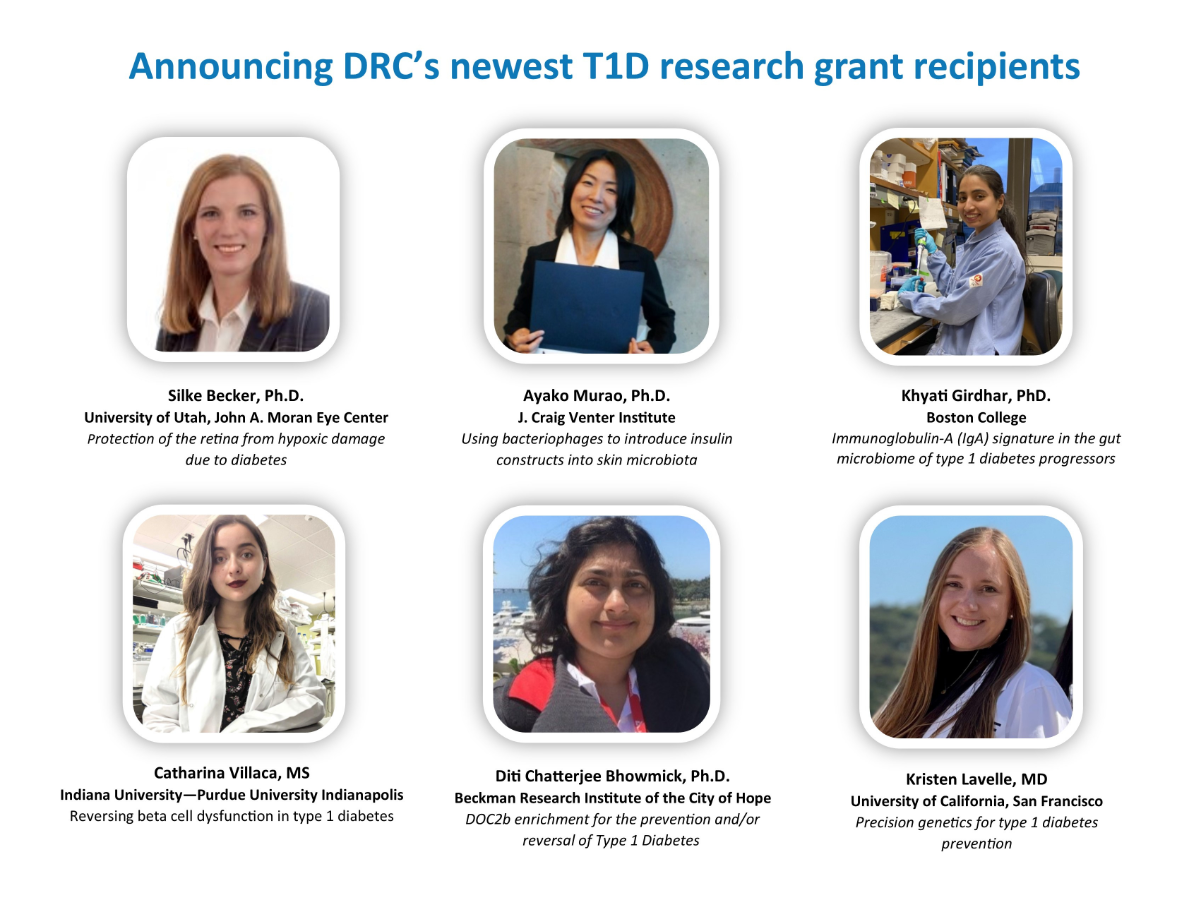Month: March 2023
-
Congratulations to our newest research grant awardees!
Join us in cheering on these new T1D researchers! Every year, hundreds of new T1D researchers for our prestigious research grant. This year, we were thrilled to review an impressive […]

